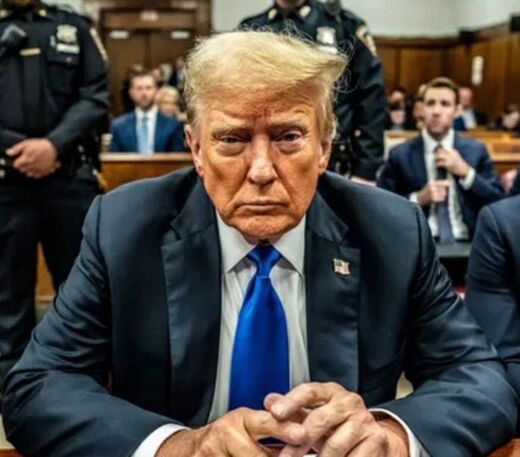Tensions in Jerusalem have risen to their highest levels since 2014 when the so-called Silent Intifada broke out surrounding rage at Israel over its war on Gaza. The 2014 conflict ended with both sides claiming victory, but was in actual effect largely a stalemate which led to the re-imposition of a permanently tense status-quo.
The proximate cause of the recent tensions was the shutting down of the Noble Sanctuary a fortnight ago. This restricted access to the Al-Aqsa Mosque, the third holiest site in Islam and a location of great historical significance. The site was closed after the death of two Israeli police offers. The three Arab-Israeli suspects were subsequently killed.
When the Noble Sanctuary re-opened, worshippers were met with fortress like security, including metal detector checkpoints guarded by Israeli police holding military-style automatic weapons.
As a result, religious and political leaders throughout Palestine called for demonstrates against the newly imposed conditions at the holy site.
The tensions led to aggressive police tactics which resulted in the death of three Palestinians who were shot by Israeli settlers.
Comment: The scope of the tensions are growing; from Sputnik, we get this:
[...] in clashes with police in the Arab districts of Jerusalem, more than 200 were injured. On Saturday and on Sunday night, skirmishes continued, including near the walls of the Old City. According to the Red Crescent, about 60 people were wounded during Saturday clashes.
The Ministry of Health also reported the death of a Palestinian, who, according to his information, had had been blown up by an old landmine in the vicinity of the city of Tulkarm on the West Bank.
Demonstrations continued throughout the 21st and 22nd of July, 2017, as video emerged of an armed Israeli offers kicking a Palestinian man knelt in prayer.
Later on the 22nd, three Israelis were killed in a knife attack in the West Bank and later in the evening of the 22nd, Israel reported that a rocket was fired from Gaza which blew-up in mid-air.
The clashes which continue, have led the United Nations Security Council to convene a meeting to discuss the issue. This will take place on the 24th of July.
Comment: The Arab League will also be meeting to discuss the clashes. Also from Sputnik:
The League of Arab States will hold an extraordinary ministerial meeting on Wednesday to discuss the situation in the city of Jerusalem, where Israeli authorities stepped up security measures amid a recent attack on policemen, Arab League's spokesman Mahmoud Afifi said Sunday.
"In the light of intensive contacts within 24 hours and Jordan's proposal, which was supported by some member states of the Arab League, the decision has been made to hold an extraordinary meeting at the level of foreign ministers on Wednesday, July 26, 2017 in the afternoon, to discuss aggression and recent measures adopted by Israel in Jerusalem in the area surrounding Al-Aqsa mosque," Afifi's statement read.
[...]
Palestinian leader Mahmoud Abbas announced on Friday a freeze of all contacts with Israel over violence in Jerusalem. Some regional states, including Turkey and Jordan, have condemned the measures of the Israeli authorities and called on Tel Aviv to resume the access for Muslims to Al-Aqsa mosque.
With clashes continuing in Jerusalem, the West Bank and the apparent rocket fired from Gaza, many are worried that tensions might boil over.
Israel continues to provoke conflict on several fronts.
First of all, the new security barriers around the Noble Sanctuary are viewed as insulting and unacceptable by Muslims. Many Christians have also participated in the demonstrations in Jerusalem. The militarization of an ancient holy site has led to wide condemnation both inside and outside of Palestine.
Secondly, the world continues to monitor activity in south western Syria, particularly around the area of the Golan Heights which Israel has illegally occupied since 1967. There is a risk of further Israeli attacks against Syrian forces and international peacekeepers in the area.
Finally, with the Syrian Arab Army and its allies in Hezbollah making gains against al-Qaeda on the mountainous border between Syria and Lebanon, many are worried that Israel might intervene militarily using the traditional excuse of fighting Hezbollah which Israel lists as a terrorist organization though Russia, China, Iran, Iraq, Syria, Venezuela and the United Nations do not. In Lebanon Hezbollah is an active political party with two cabinet ministers in the Lebanese government as well as 12 seats in the current Lebanese Parliament.
Israel would be hard pressed to fight a war on three fronts, even though based on Israel's history and its recent rhetoric, this is an increasingly disturbing possibility.
Russia has stated that all of Israel's security concerns in respect of south western Syria have been addressed while the United States continues to cooperate with Russia in that particular region. Meanwhile, Sweden, Egypt and permanent United Nations Security Council (UNSC) member France have reiterated the importance of a UNSC meeting to "urgently discuss how calls for de-escalation in Jerusalem can be supported.
If Israel does not work hard to reach a compromise with Palestinian leaders, a new wave of protests could hit Jerusalem and the West Bank. Currently, Palestine's President Mahmoud Abbas has suspended agreements for security cooperation with Israel over anger at Israel's decision to militarize the Noble Sanctuary.
Until Israel negotiates a settlement in respect of the Noble Sanctuary, Palestinians could respond by measures which could easily escalate into a new Intifada. Israel could either make the situation better or worse. It is entirely in Tel Aviv's hands.






Comment: Given Israel's long-term plans for Lebensraum or living space, sadly, it looks likely that things will only get worse, and possibly far worse than it already is.